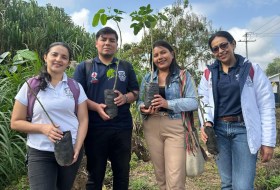News
Think, act and transform: sustainability from the University of Cauca
In a world marked by climate crisis, biodiversity loss, and growing inequality, sustainability is a word that frequently appears in institutional discourses, development plans, and global agendas. However, at the University of Cauca it is neither a rhetorical slogan nor a passing trend: it is a conviction that guides our way of acting. A conviction that translates into informed decisions, everyday practices, and an institutional responsibility toward the environment, the territories, and future generations.
The recent inclusion of our University in the Times Higher Education Impact Rankings 2025, which measure global contributions to the Sustainable Development Goals (SDGs), represents a significant institutional milestone. It is the first time we have participated in an international exercise of measurement and visibility of our contributions to the SDGs, the result of a systematic information-gathering process led by the Planning Office. This effort highlights not only the scope of our actions but also our willingness to confront the challenges imposed by climate change, environmental degradation, and social inequalities.
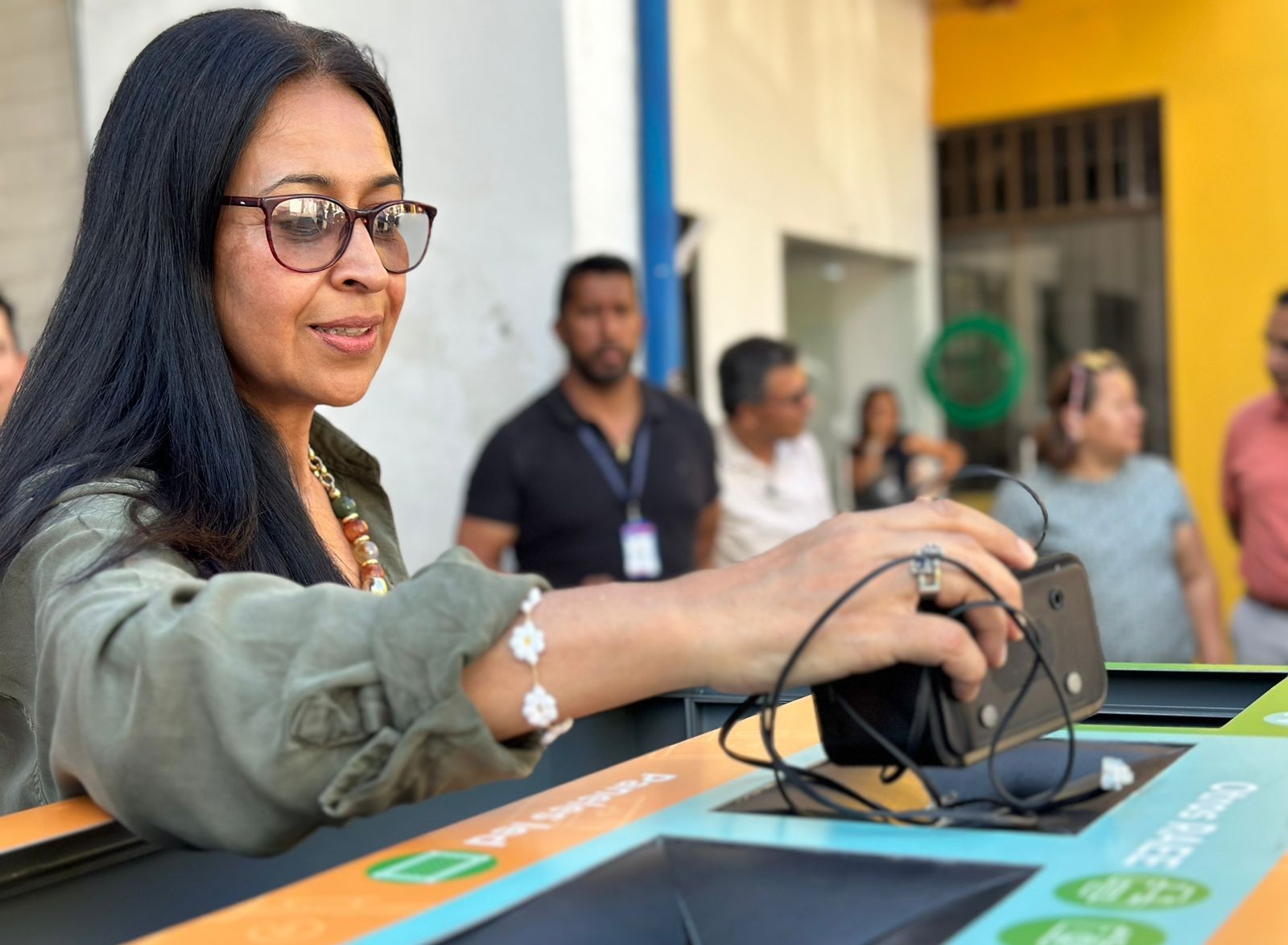
The University has a post-consumer waste container, designed for the proper management of batteries, light bulbs, and other special-handling items.
A Bicentennial University environmentally responsible
With nearly two centuries of history, the University of Cauca understands that sustainability cannot be a delegated, fragmented, or peripheral task. We have promoted a vision that goes beyond compliance with regulations and becomes integrated into the academic, research, and administrative life of the institution. This perspective has allowed us to consolidate policies and practices that strengthen environmental culture and build public value.
In recent years, we developed the Environmental Management Plan as a tool to operationalize the Environmental Policy, updated the Comprehensive Waste Management Plan, established a carbon footprint baseline across different periods, and launched a digital system for real-time monitoring of key environmental indicators. These instruments are not an end in themselves; they provide the technical foundation for informed decision-making, prioritizing investments, and evaluating progress with effectiveness and relevance.
The numbers speak of a continuous effort. Through post-consumption collection campaigns, we delivered more than four tons of waste to authorized managers. A total of 78,505 kilograms of organic fertilizer were produced, of which 62,100 came from leaf litter collected during campus garden maintenance, and 8,254 from university cafeterias. Meanwhile, 61,750 kilograms of solid compost were generated at the Academic and Experimental Center La Sultana from poultry litter, cattle manure, organic matter, and crop by-products. In addition, the Ruta Limpia program, based on a source-separation strategy reinforced with training and supplies, has enabled the recycling of more than eight tons of usable waste.
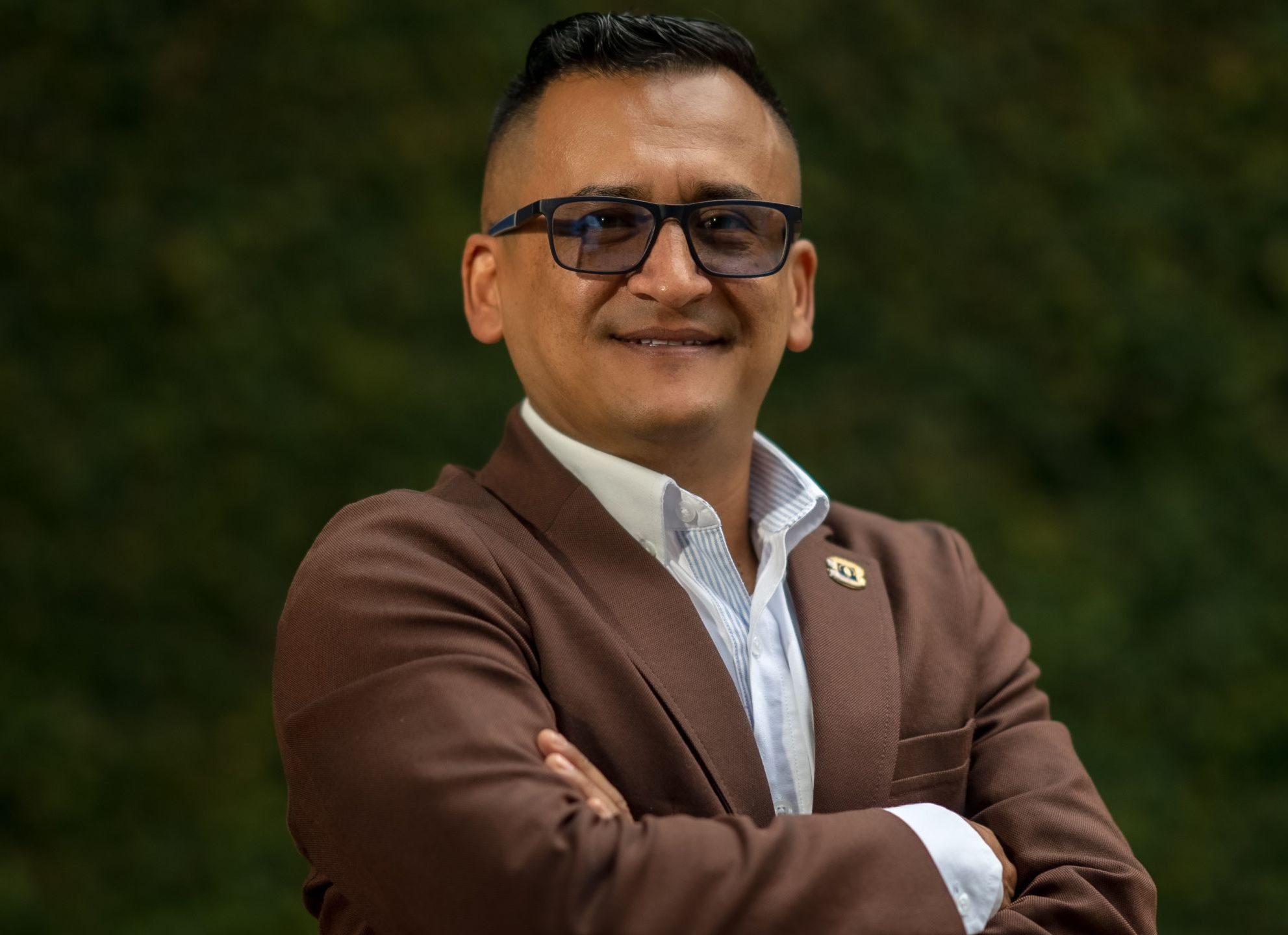
Alexander Buendía Astudillo – Director, Center for Quality Management and Institutional Accreditation
In 2024, as part of this same commitment, the University of Cauca participated for the sixth time in the GreenMetric Ranking, an international assessment led by the University of Indonesia that evaluates sustainability performance in higher education institutions. The results were encouraging: we obtained high scores in waste management, energy efficiency, and sustainable mobility, ranking 907th worldwide, 121st in Latin America, and 42nd in Colombia.
Commitments beyond indicators, because yes, our actions transform lives!
These achievements are neither isolated nor episodic; they stem from a structural approach that links internal actions with strategic alliances. We joined the National Carbon Neutrality Program, signed agreements with international campus sustainability networks, and adopted institutional protocols for responding to climate-related events. At the same time, we developed technical criteria for managing the university’s arboreal component, prioritizing conservation, safety, and community dialogue as guiding principles.
Since 2023, the Center for Quality Management and Institutional Accreditation has been carrying out combined audits that integrate the evaluation of both quality and environmental management systems. This strategy, in addition to optimizing resources and strengthening the capacities of the audit team, has helped to disseminate the Environmental Policy, establish alliances with institutional actors, and promote joint actions aimed at controlling environmental impacts, formulating projects, and strengthening university environmental management.
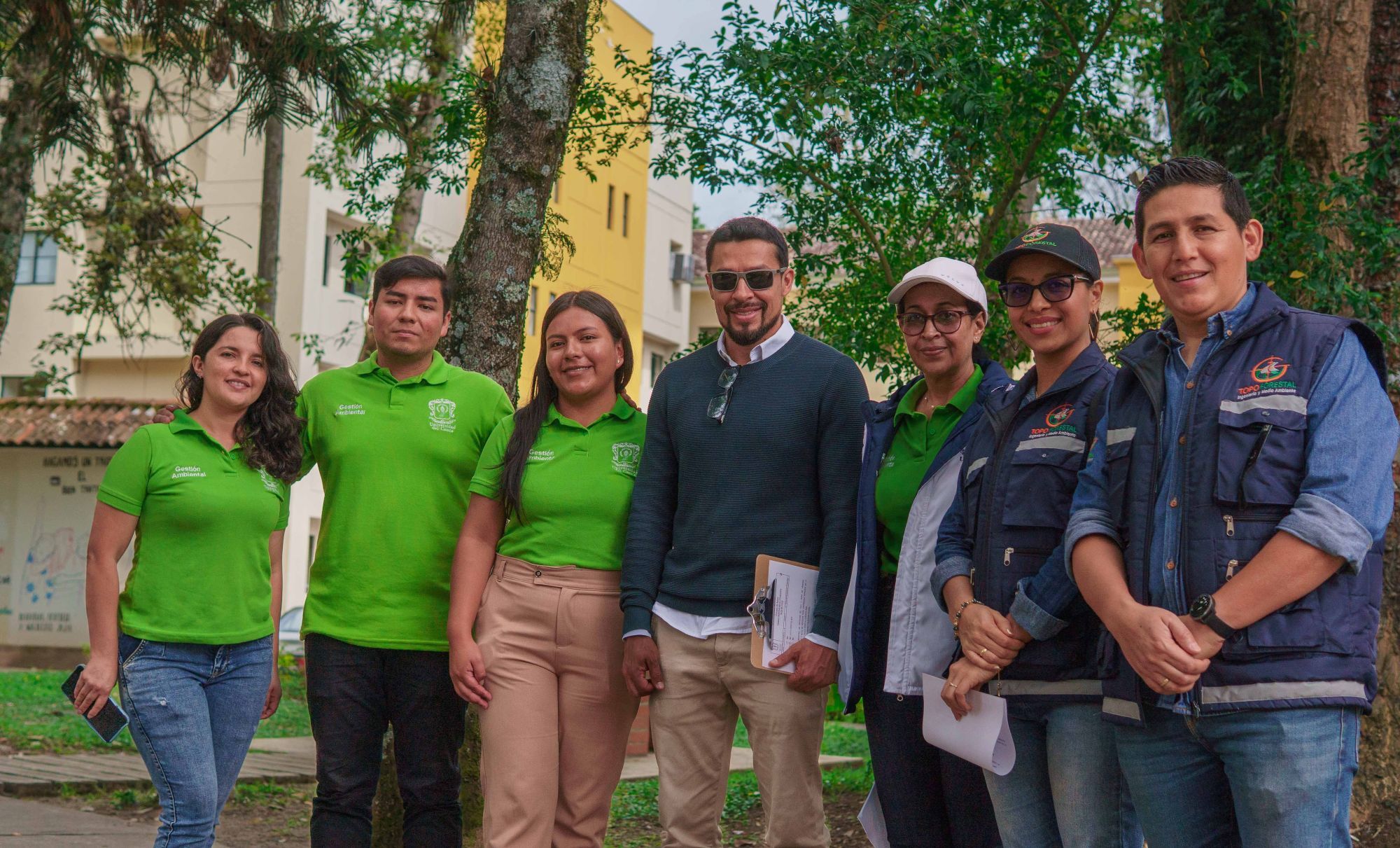
The Environmental Management team conducts outreach sessions on forestry interventions aimed at conserving trees and ensuring university safety.
Our contribution to the SDGs is not measured only in initiatives or technical reports, it is reflected in the way these actions influence university life, change everyday practices, and reinforce an ethic of care. At the University of Cauca, the SDGs are not a checklist or an external agenda; they are a navigational guide that aligns our decisions with today’s social and ecological challenges.
For SDG 4 (Quality Education), we contribute by integrating the environmental dimension as a cross-cutting axis in our educational processes. In 2024, more than 300 people participated in training on Environmental Policy, waste management, climate change, and efficient resource use. These processes go beyond knowledge transfer: they foster critical awareness, empowerment, and cultural transformation.
Aligned with SDG 12 (Responsible Consumption and Production), we have strengthened our capacity for waste management, impact reduction, and the promotion of sustainable habits. The updating of diagnostics, formalization of agreements with authorized waste managers, and the design of a monitoring software for water, energy, and waste, scheduled for implementation in 2025, also connect our efforts to SDG 9 (Industry, Innovation and Infrastructure).
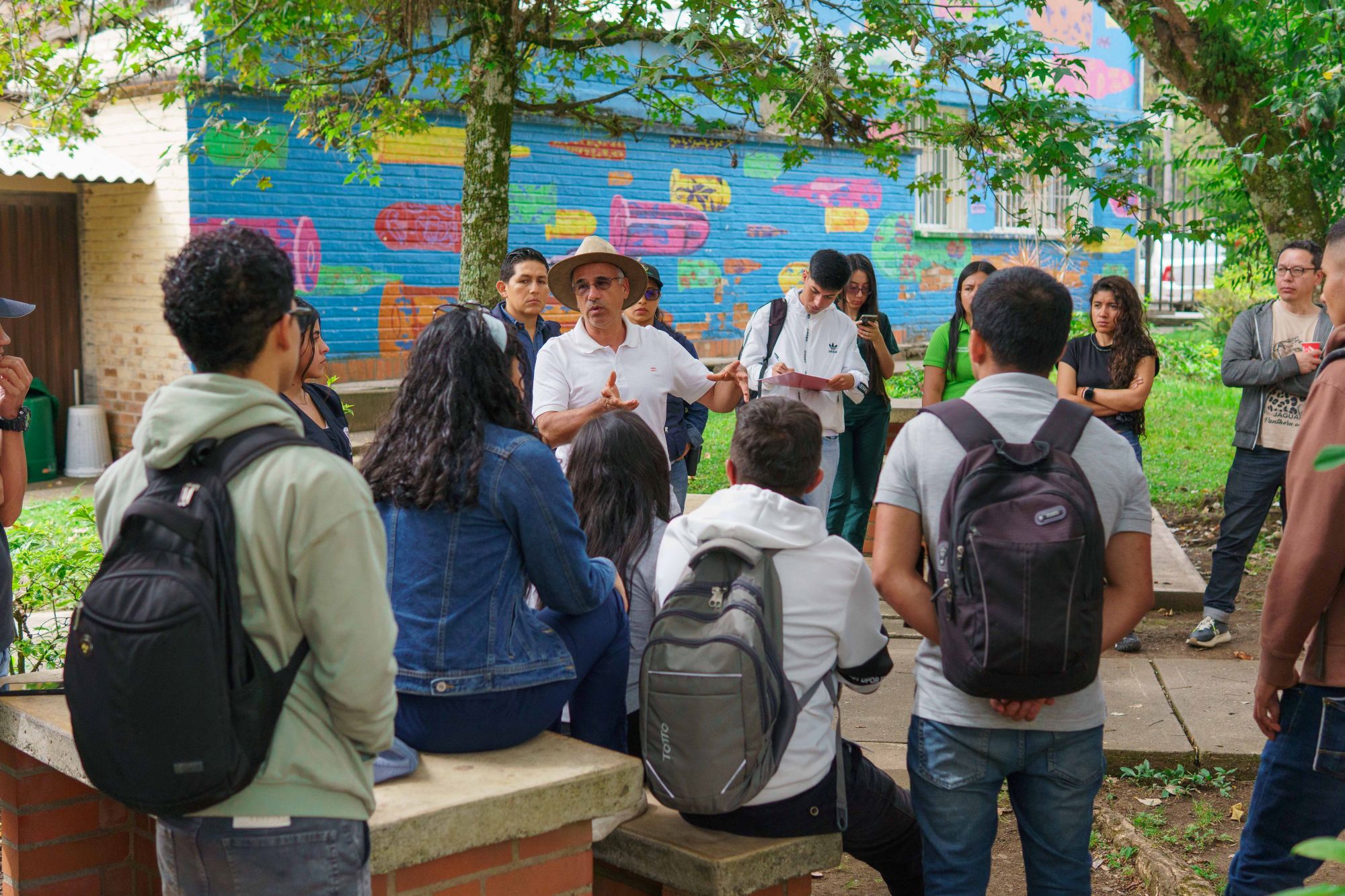
Photo: Outreach session at the Faculty of Natural, Exact, and Education Sciences on the protection of fauna and flora in university campuses.
Participation in the National Carbon Neutrality Program, together with the preparation of technical carbon footprint reports, has allowed us to plan more effective adaptation strategies, aligned with SDG 13 (Climate Action). A pending challenge remains: formulating an institutional greenhouse gas management plan to integrate existing commitments. Likewise, reforestation and guadua conservation actions on campus align with SDG 15 (Life on Land) and SDG 11 (Sustainable Cities and Communities).
The strengthening of environmental governance mechanisms, through the renewal of the Technical Committee for Environmental Management and documentation of the procedures related to the management of the university’s arboreal component, reflects a commitment to participation and transparency, principles of SDG 16 (Peace, Justice and Strong Institutions). Beyond regulatory compliance, these actions reflect an institutional ethic that acknowledges that today’s decisions impact tomorrow’s collective well-being.
We do not do this to comply. We do this because we understand that our history commits us. A bicentennial university cannot be indifferent to the challenges of its time. That is why every figure reported, every policy adopted, and every action implemented stems from a deep conviction: the responsibility of public institutions does not end with administrative or academic matters it extends to how we impact our environment, build community, and project the future.
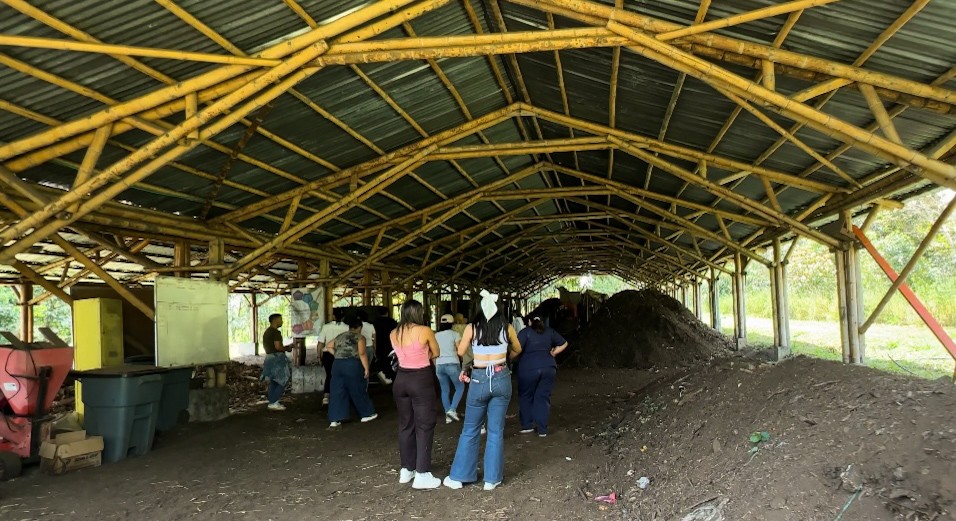
At the composting plant, located at La Rejoya farm, organic waste separated in university cafeterias and gardens is managed.
Today, looking back at the path traveled, we can affirm that we have the real capacity to lead sustainability processes within the higher education sector. We have the instruments, the technical experience, and above all, the institutional will to keep moving forward. The real challenge is to go further: to consolidate a living, transversal, and critical environmental culture capable of inspiring other universities, transforming the territory, and preparing generations who not only understand socio-environmental challenges but are ready to confront them.
Written by: Alexander Buendía Astudillo – Director, Center for Quality Management and Institutional Accreditation


